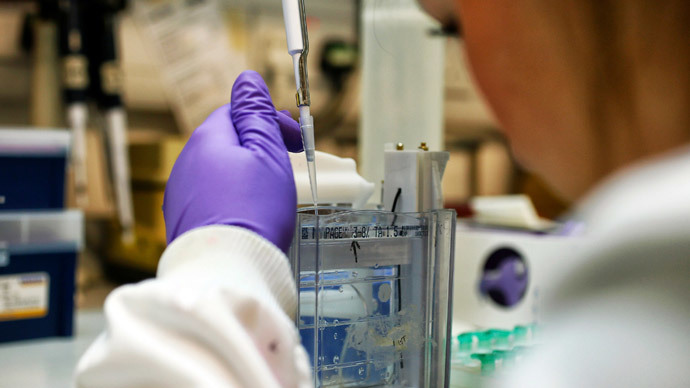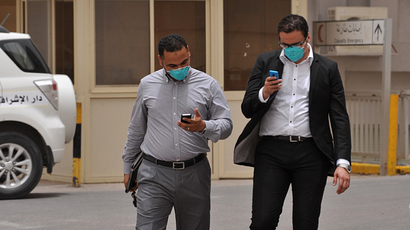First Greek MERS case: Patient in ‘critical condition’

Greece’s first confirmed Middle East Respiratory Syndrome (MERS) patient is reportedly in critical condition, according to doctors. Meanwhile, Saudi Arabia’s health minister has been sacked without explanation as the country’s death toll climbs to 81.
The 69-year-old Greek patient contracted the deadly MERS
coronavirus in Saudi Arabia, where he is a permanent resident.
The man returned from Saudi Arabia to Greece on April 17. The
Greek Health Ministry confirmed to AP that it was there he fell
sick.
Saudi Arabia has suffered the most fatalities from MERS so far
and has been the site of most recorded cases. Upon the man’s
return to Greece, he started running a high fever and tested
positive for MERS.
He was placed in an isolation chamber and his condition is still
being monitored by doctors. Doctors are expected to obtain test
samples from his wife to ensure that MERS is not also present in
her system.
MERS has frequently been compared to the Severe Acute Respiratory
Syndrome (SARS) virus which swept through Asia in 2003, infecting
over 8,000 people and causing some 800 deaths worldwide. MERS is
thought to be deadlier but more difficult to transmit.
There is no vaccine or treatment for MERS at present. However,
according to reports from Greek TV channel MEGA, an experimental
drug has been bought with the intention of combatting the man’s
contagious condition.
Since September 2012, the World Health Organization has noted 250
confirmed occurrences of MERS. Ninety-three people have died
since.
In Saudi Arabia, 81 people have died from MERS since September
2012. On Monday, Health Minister Abdullah al-Rabiah was sacked
shortly after visiting a hospital in Jeddah – the main gateway to
the Islamic holy city of Mecca, in the country’s west – in order
to alleviate heightened public fear over the virus.
Saudi Arabia confirmed 20 new cases of the deadly Middle East
Respiratory Syndrome (MERS) virus on Saturday and Sunday, meaning
that 49 new cases were registered in the span of only six days.
On Sunday, al-Rabiah told reporters that there has not yet been
any scientific justification for further cautionary measures such
as the implementation of travel restrictions.














